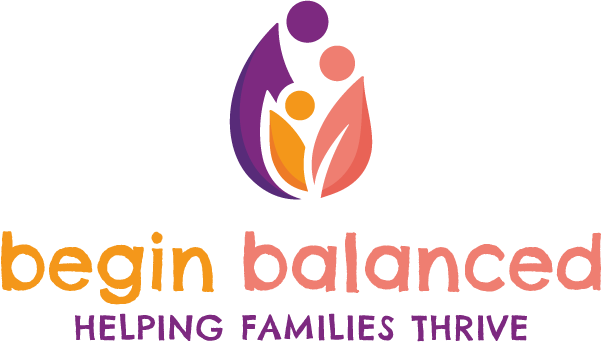How to Avoid Helicopter Parenting - start early!
No doubt, you’ve heard the terms “helicopter parenting” or “over parenting” in the media recently.
We are seeing more and more information that points to the fact that being over involved in a child’s daily life skills, social interactions and school relationships can be detrimental down the line. If one does not learn to manage situations independently from early on, it’s not fair to suddenly expect these skills to develop over night when a child is a teenager or college aged.
That being said, children need to feel safe and protected; to know that if they fail you are there to help them. Especially when they are young. So I am not an advocate for throwing your kid into the deep end and having them figure things out alone constantly.
Just like we need to be taught ANYTHING at any age, it’s important to explicitly TEACH our kids to be independent, to problem solve, to be resilient, etc.
After years of working with kids from 0-18 as a classroom teacher, occupational therapist, hospital volunteer, cooking teacher and much more, I have found that teaching any skill requires modeling, direct support, and then the opportunity to try and fail with a safety net. I follow the steps I’ve outlined below. The rate at which you’ll go through this ladder will depend on your child and how often you practice the skill.
START EARLY! Specific example below!
I do it for you
We do it together
I do it then you do it with me watching
You do it with me watching/nearby
You do it by yourself; we can problem solve after if needed
PRACTICAL EXAMPLE
SOCKS and SHOES: I often notice parents putting on shoes for their kids because they are in a rush. If kids don’t get the chance to practice this skill from early on, it decreases their independence, albeit in a small way, from a young age. It’s not fair to suddenly expect a 5 year old to dress himself/herself for kindergarten if you haven’t given him/her small opportunities to practice parts of these tasks along the way.
If you haven’t practiced this at all yet, make sure not to do it when you’re in a rush. Pick a day of the week that you’re not racing to get out the door.
FYI: You’ll see MANY different age ranges online & in developmental milestone apps and articles. In general, babies often start taking off loose socks purposefully between 12-18 months. Taking shoes and socks off is generally a skill I would expect to see by 2-3 years old. Putting shoes and socks on is sometimes harder; 3-4 year olds generally have this down as long as their shoes fit properly. Every child is different, go with the flow. :)
I do it for you - Take your child’s socks/shoes off for them. Try to talk through what you’re doing in simple language. Ideally if their eye contact/joint attention is on you that makes it easier to model this.
We do it together - Gently hook their finger or thumb into a sock or shoe and use your hands to help them take off the item. Praise them for taking their socks/shoes off. Hand over hand assistance is usually necessary here.
I do it then you do it with me watching - When they are ready, you can take off one sock/shoe and they can do the other one on their own. Let them struggle a little and offer a little help/hand over hand assistance if needed.
You do it with me watching/nearby - When they’ve got one sock/shoe down, we know they can likely do both! So encourage them to take shoes/socks off. Stay with them in case they need help or get frustrated. Sometimes kids seem to have mastered something one day, but on other days something (they’re tired, hungry, off routine, etc) may be preventing them from performing the task independently. That’s ok!
You do it by yourself - When you get inside, you take your shoes/socks off and move away/into the home. Remind them that if they need help they can ask for it. Try to be out of direct eye contact/physical presence for this one so they can experience what it feels like to do it independently. Afterwards you can say something like “You took your shoes and socks off yourself! Thanks for working so hard!” of “I’m proud of you for working hard.”
You can use the SAME STEPS above for MANY different tasks: cooking, setting the table, brushing teeth, cleaning up toys, putting your jacket on, social skills, emotional regulation and more! Start with one item and try it!
I highly recommend reading this book at ANY TIME (before you have a kid or even if they are over 18!) if you want more information, research and detailed stories about how helicopter parenting can be detrimental and what to do about it! Parents deal with peer pressure too - you might not want to be a helicopter parent, but everyone around you is doing it. This book gives great tips on how to handle all of that. If you’re not into the research or background information, skip to PART 3 and PART 4 for practical strategies.
Buy it here: How to Raise an Adult by Julie Lythcott-Haims(former dean at Stanford University).
P.S. I only link to products I use/love. If you choose to use the links above, I may receive compensation, which helps keep this website running. Thank you!


